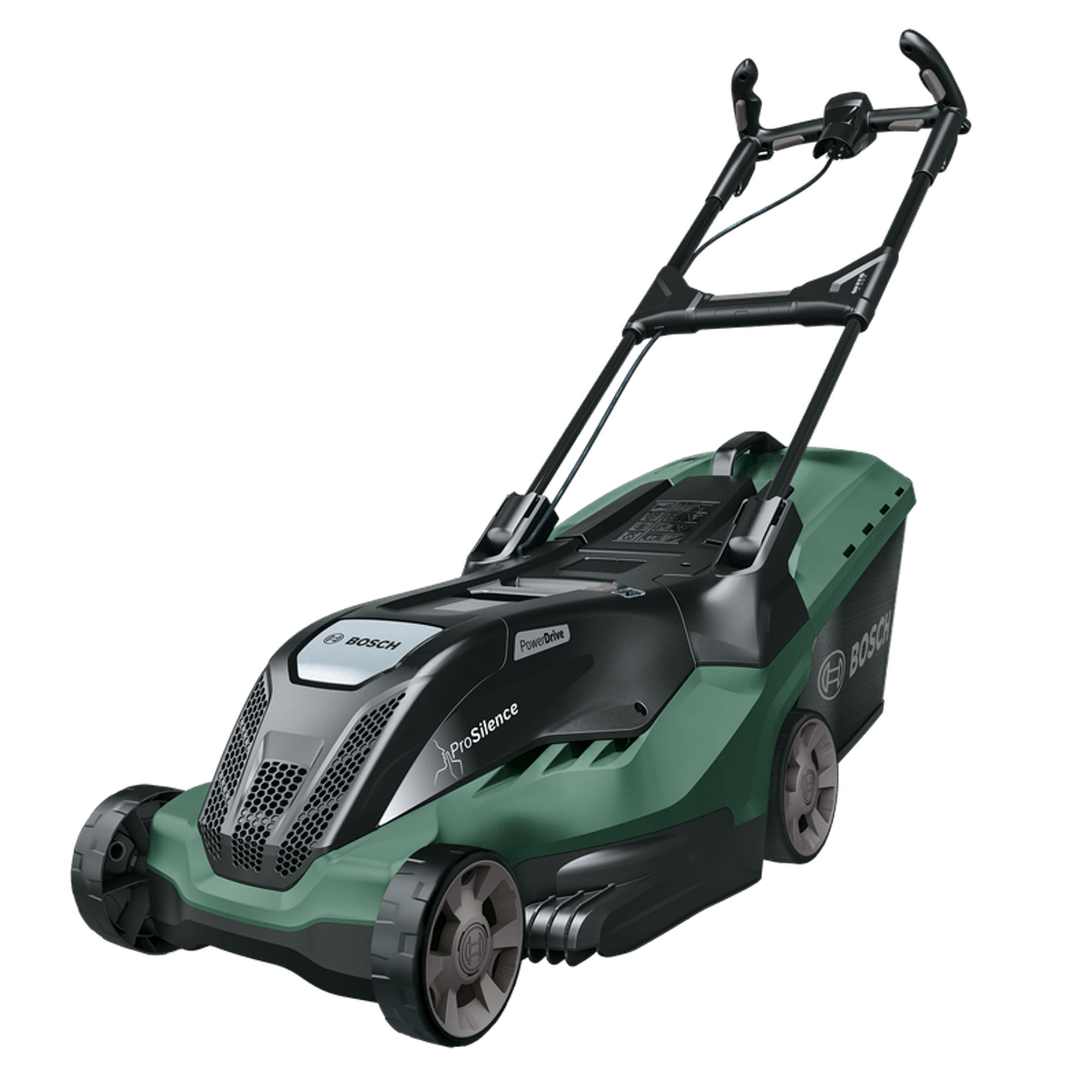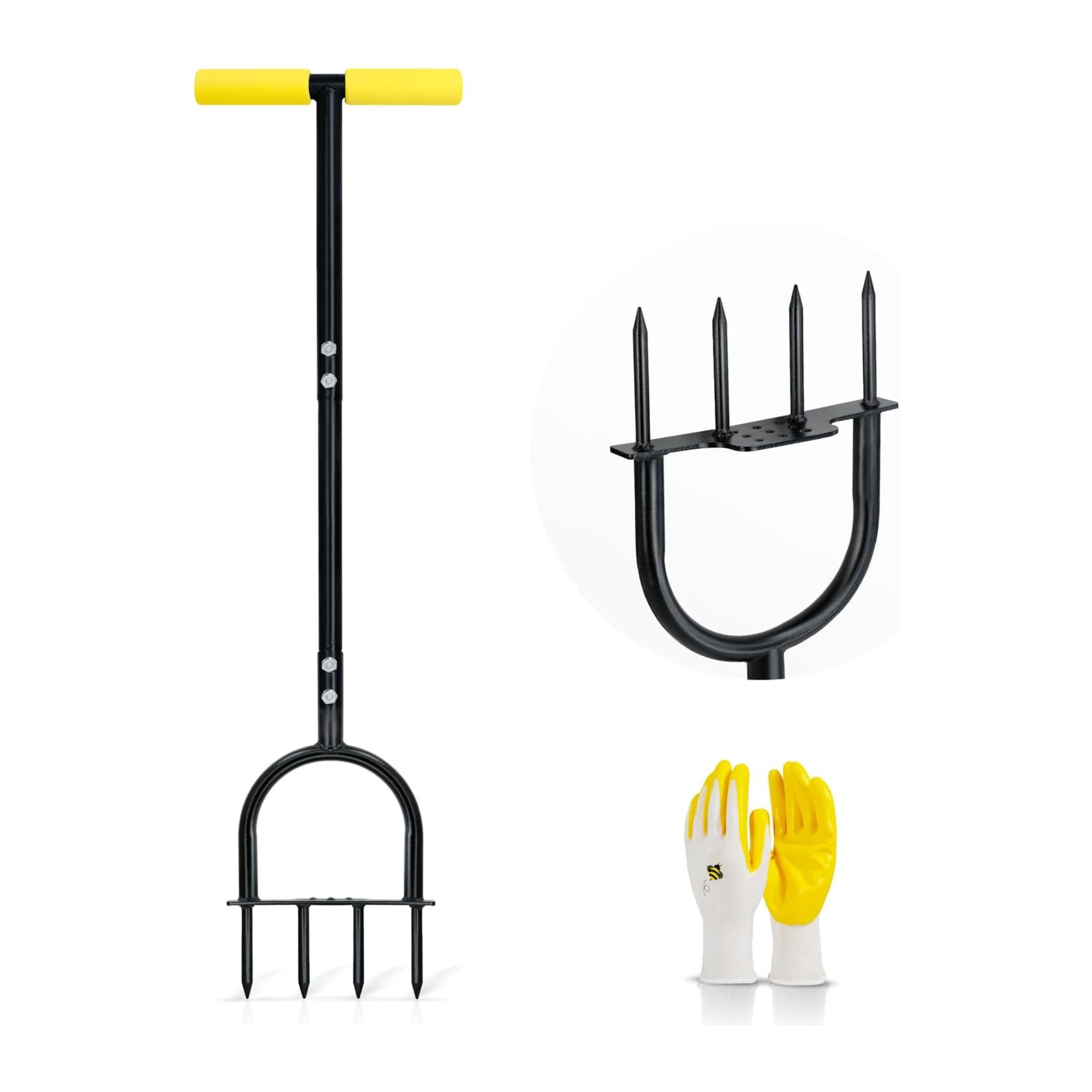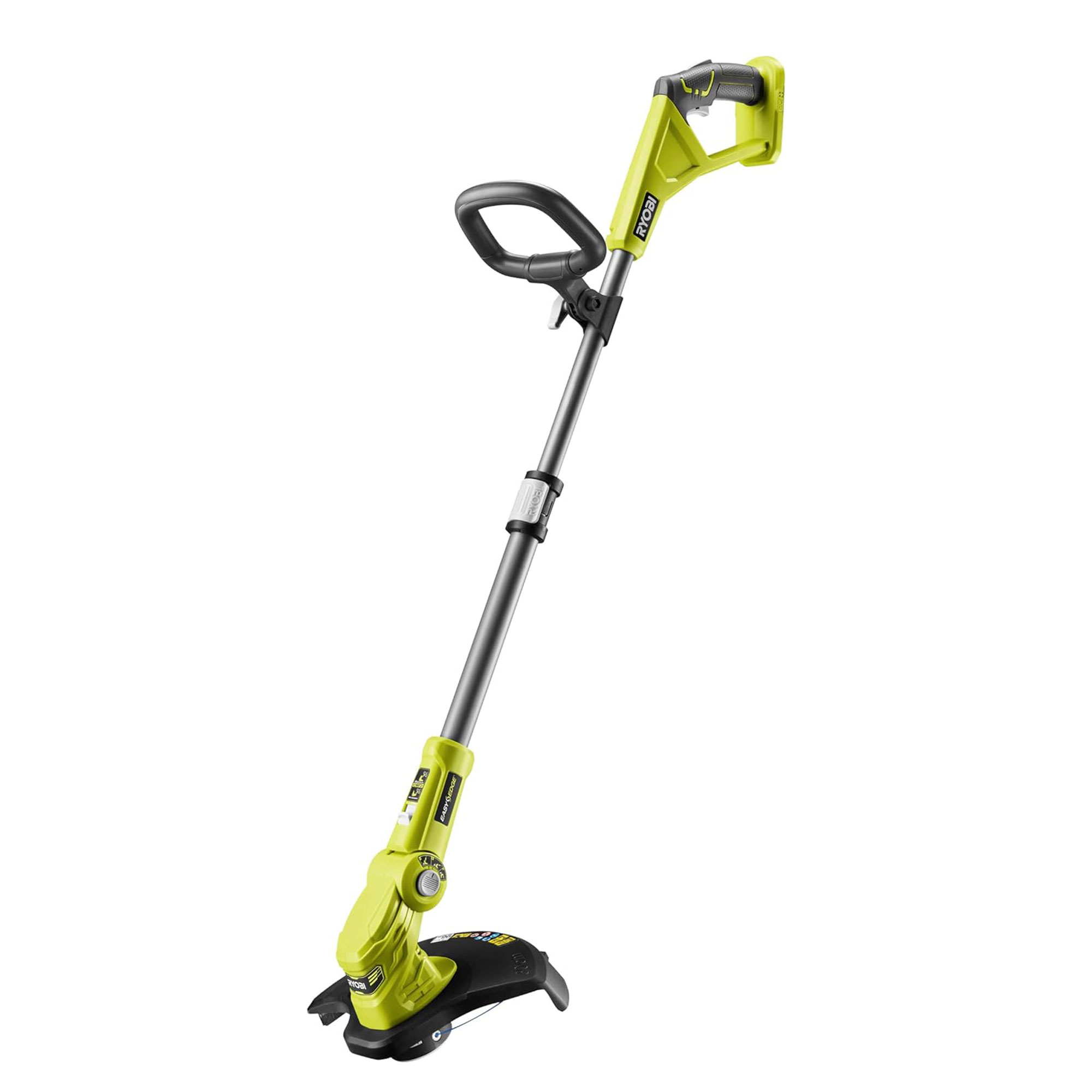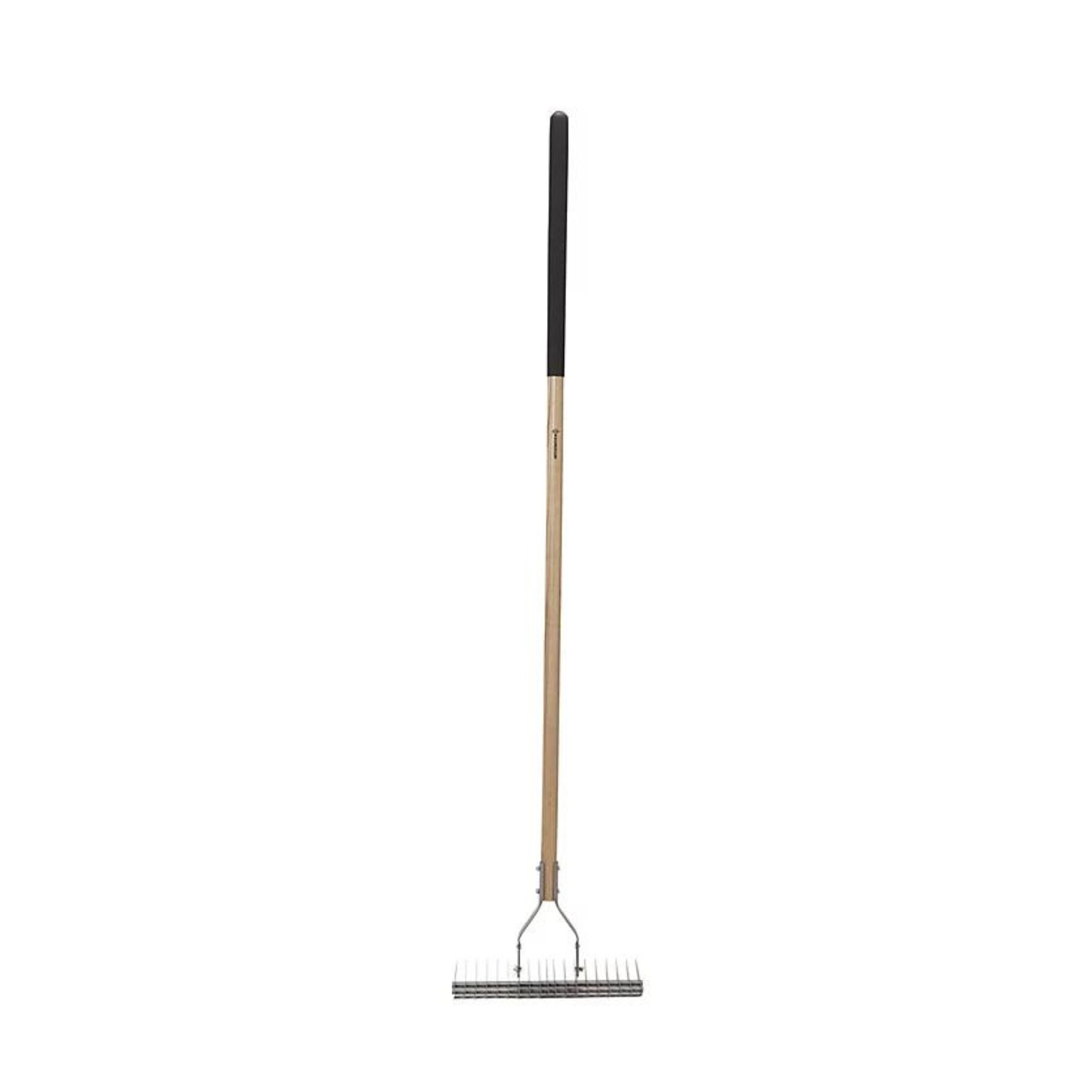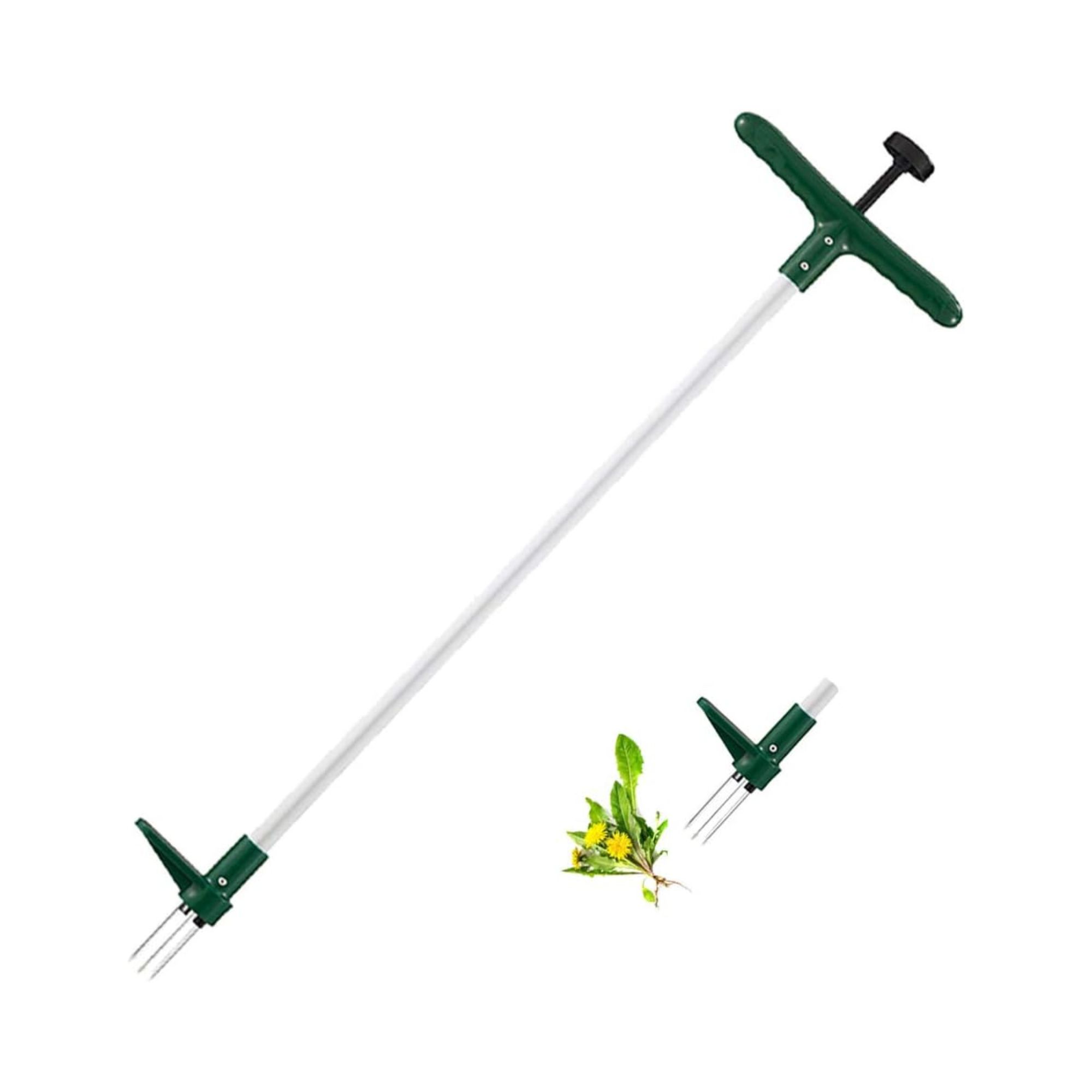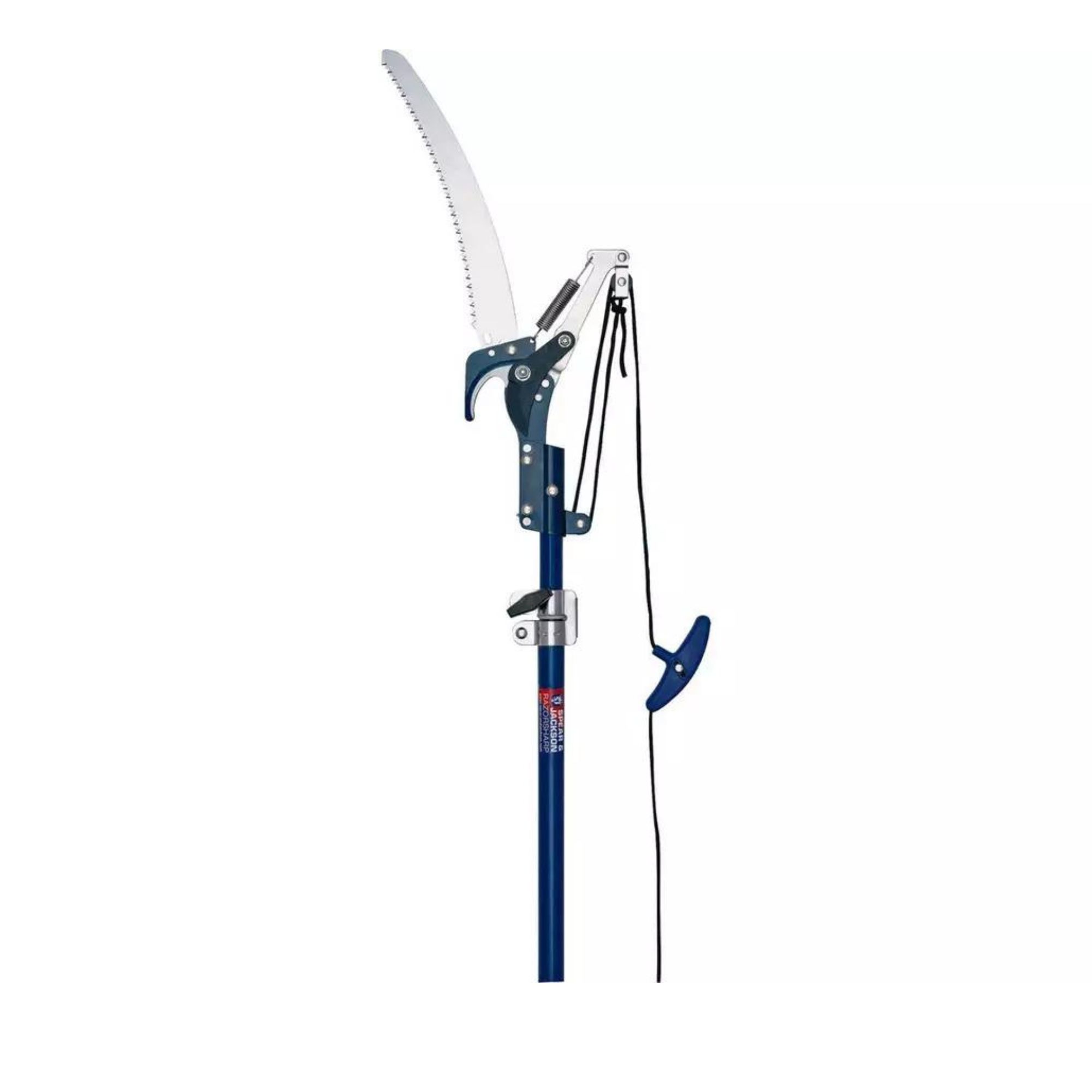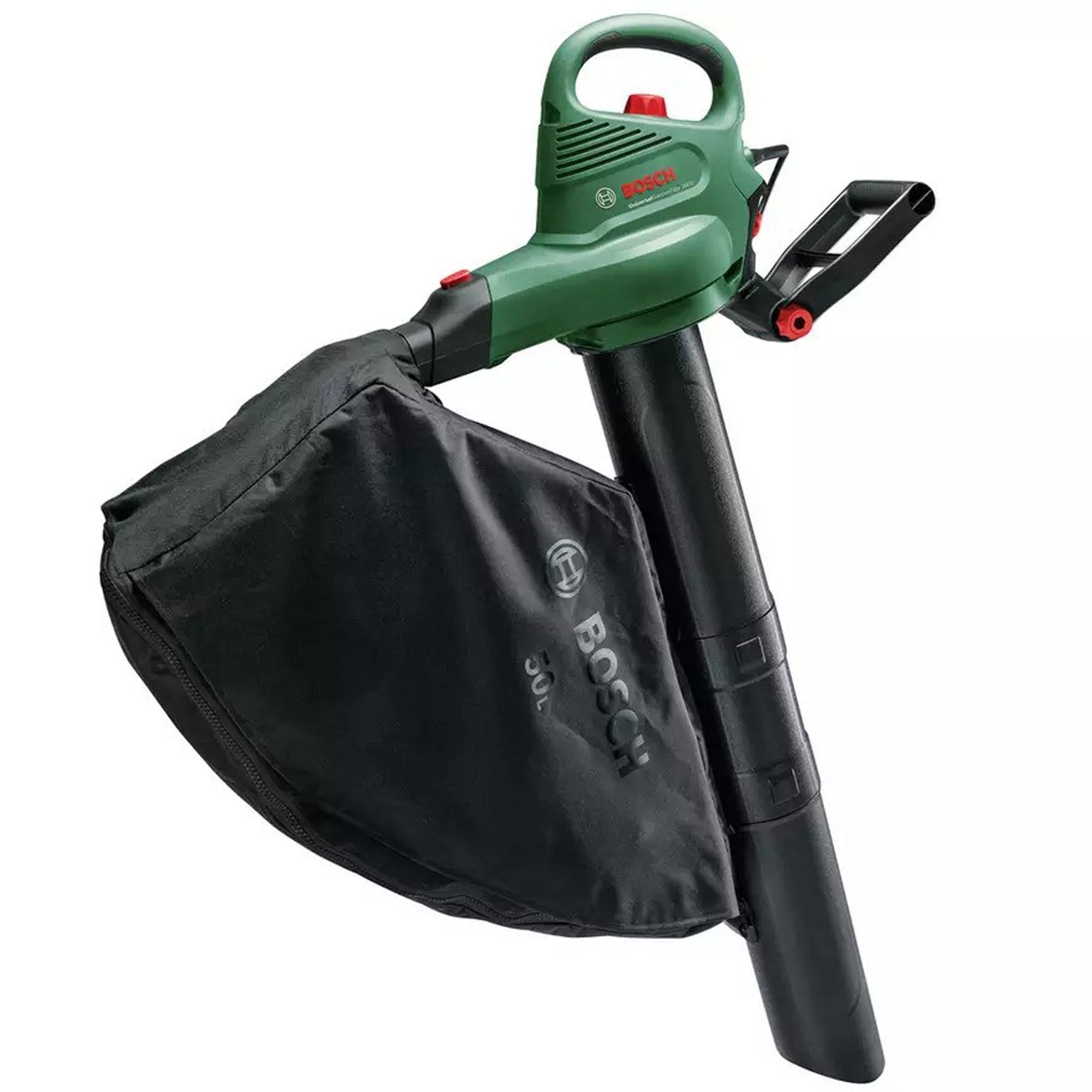Lawn care calendar – the tasks you should be doing each month to guarantee healthy grass all year round
Our expert-approved, month-by-month guide
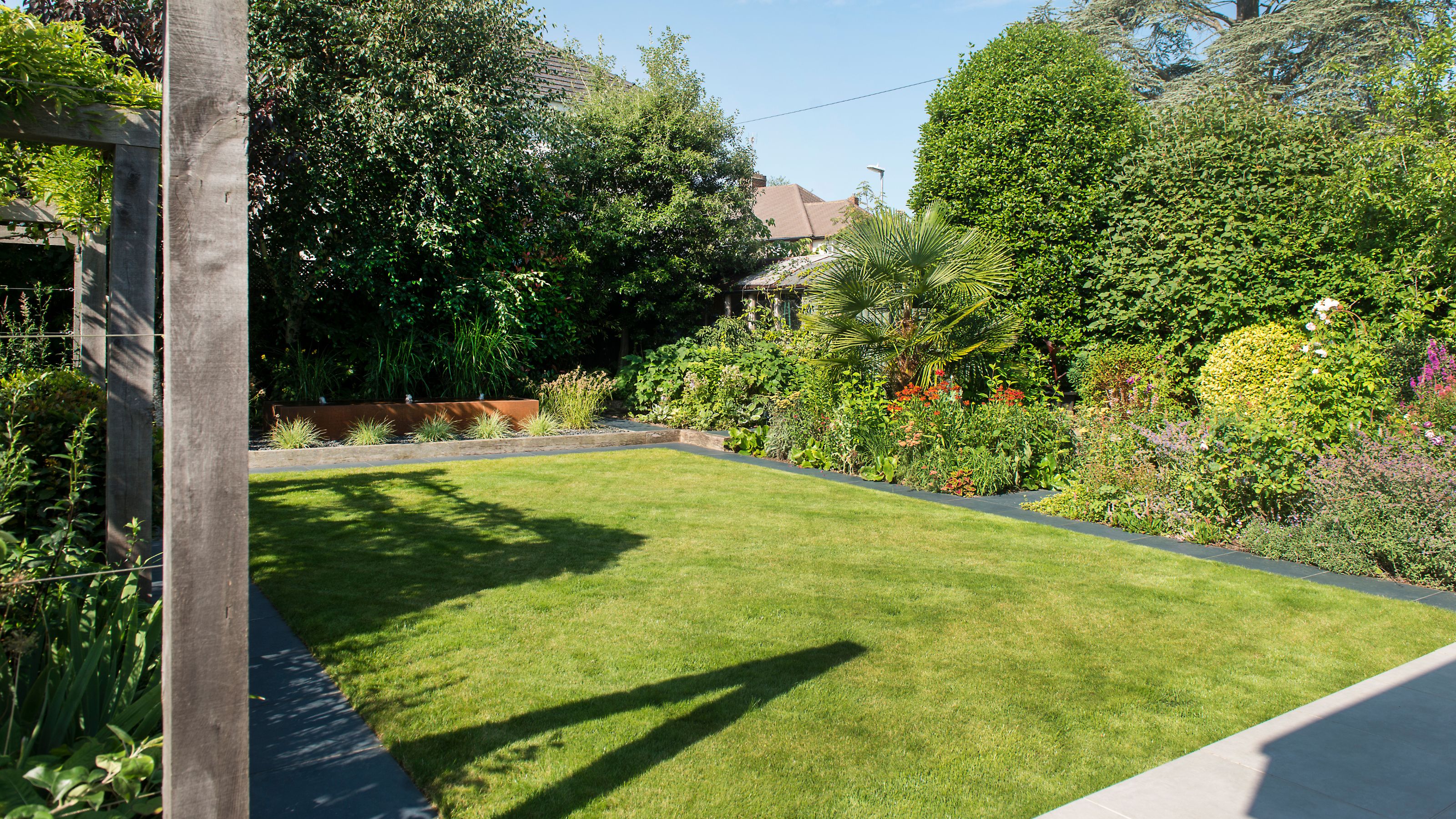

Sophie King
The best way to keep a lush, healthy lawn all year round? Keep a lawn care calendar in your back pocket.
That's why we've compiled all of our favourite lawn care tips into this month-by-month guide. Great lawn care is about more than just having one of the best lawn mowers to hand (although that'll be a huge help) – various other tasks can make a world of difference, from aeration to scarification. But more on those shortly.
You'll need to make sure you're doing each task at the right time, though – so take a look at our lawn care calendar for the ultimate helping hand.
January lawn care

In the midst of January frosts and freezing temperatures, you’re probably not focusing too much on your lawn. Thankfully, that’s the best thing you can do for your lawn this month – especially if you want to avoid making any winter lawn care mistakes.
As grass protects the ground from harsh temperatures, trampling over the blades and flattening them can allow the frost in. It can even result in drainage issues, which can cause the ground to compact even further – so it’s best to give your lawn a wide berth, and make sure it's as clear as possible.
'When the weather allows, take a moment to check your lawn for any objects that may have been left behind,' advises Alasdair Boyes, technical manager and lawn care expert at GreenThumb. 'Items such as furniture, toys, or even fallen branches can create dead spots on your grass, leaving it stunted or sparse when spring arrives.
'Clearing these objects now ensures that your lawn has the best chance to recover and thrive in the new season.'
February lawn care

Although February is just one month away from spring, it’s too early to start cutting your grass after winter. The temperatures are still cold, meaning your lawn is still vulnerable to frost damage.
That's why February is the perfect time to inspect your lawn and assess the winter damage. This way, you can put together a plan on how to revive your lawn after winter and make sure you have all of the necessary tools and products ahead of schedule.
March lawn care
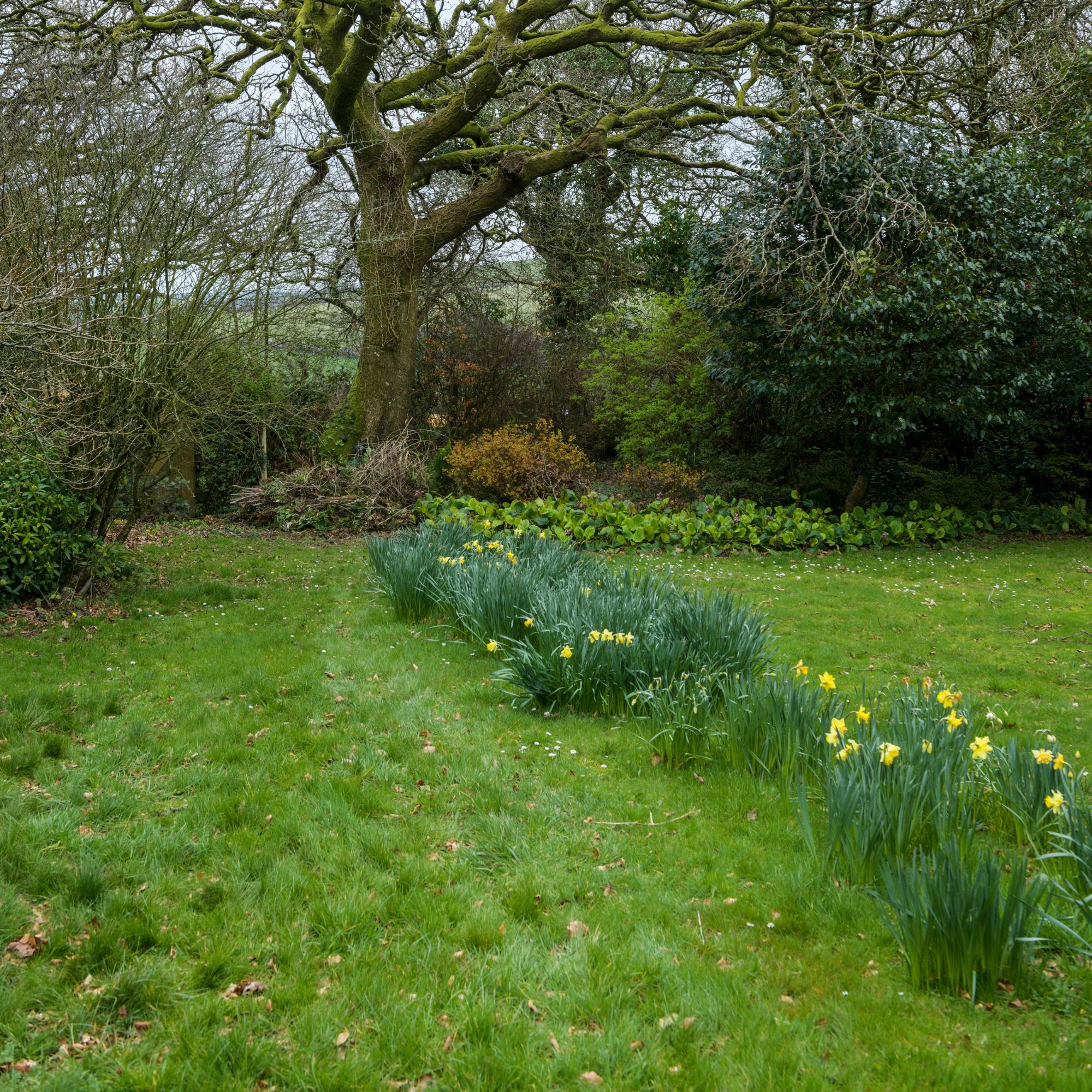
If the weather is warm and you can see that the grass is actively growing, there’s nothing stopping you from giving your lawn a haircut as part of your March lawn care regime.
John Clifford, gardening expert at Gardenstone, says, ‘Begin mowing the lawn regularly, gradually lowering the height of the mower blades to prevent the grass from being damaged. Going in with your mower on a high setting straight away can cause damage.’
If the weather permits, March is also a great time to learn how to aerate your lawn.
April lawn care

April is a busy month for green-fingered gardeners who want to keep their lawns in tip-top condition throughout the spring and summer months.
There are so many April lawn care tasks to choose from, whether you want to learn how to scarify your lawn or start getting rid of weeds in a lawn.
According to Ben Agnew, grass expert at Lawnsmith, it's also a great time to overseed your lawn.
'The spring months are all about repairing the grass after winter,' he says. 'Even well-maintained areas of lawn can look thin and patchy as poor sunlight and damp, wet conditions in the winter months cause individual grass plants to become damaged and die. To repair seasonal dieback, a period of overseeding is necessary.'
May lawn care

By the time May comes around, spring should be in full swing, and your grass should be growing week-on-week. If you’re looking to improve lawn drainage, this month could be the time to tackle these problems once and for all.
How you do this depends on the type of drainage issue you’re dealing with, but we’d recommend either installing a French drain or levelling your lawn to prevent any excess pooling or puddling.
Aside from this, you might want to consider temporarily retiring your lawn mower for No Mow May. This will encourage pollination and bring wildlife to your garden. And with this extra time on your hands, you can tidy up your lawn edging for summer, too.
June lawn care
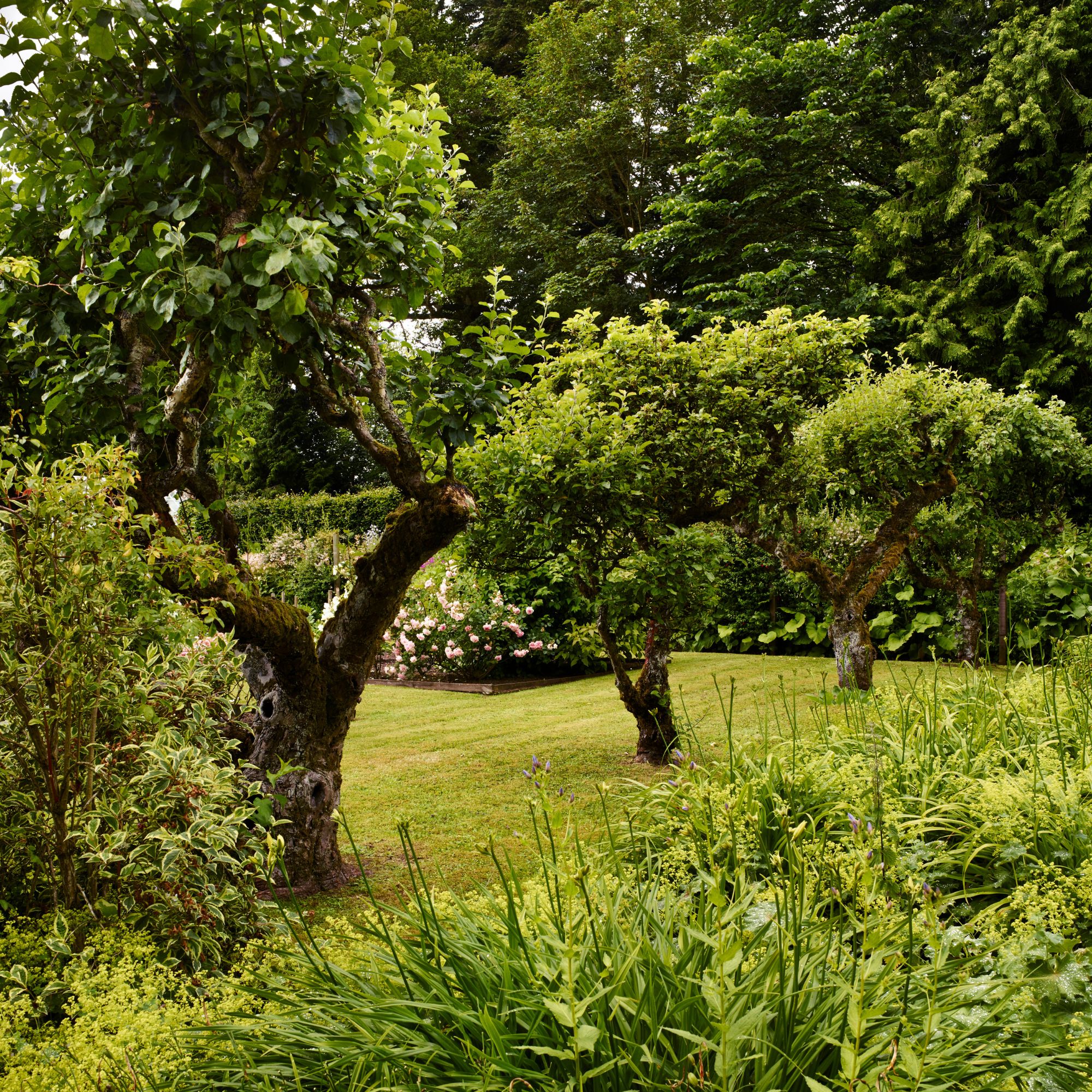
In June, your lawn care efforts from the past few months should finally be paying off.
Your grass should be growing greener and thicker thanks to the warmer temperatures, seeding, and aeration, and the only thing you should really worry about is how often you should mow your lawn. That's one of the main lawn care tasks for June, anyway.
If you’re worried about the state of your lawn during the warm and dry temperatures, though, you could also consider watering your lawn. The best way to do that is with a sprinkler system like this Hozelock Rectangular Sprinkler from Argos, but just make sure you avoid making any garden watering mistakes.
July lawn care

By July, summer will be in full swing, and you’ll probably be spending your days enjoying the best garden furniture and whipping up a few burgers on the best BBQ. And while there’s not a lot you need to do in terms of lawn care in July (aside from mowing and watering, of course), you could feed your lawn for some extra TLC.
This isn’t essential, but using a summer lawn feed like this Miracle-Gro EverGreen Premium Plus Thick & Green Lawn Food from Amazon can give your lawn an extra boost of nitrogen, which will keep it looking luscious and thick.
Just remember to avoid putting garden furniture on grass to maintain the health and integrity of the blades.
August lawn care
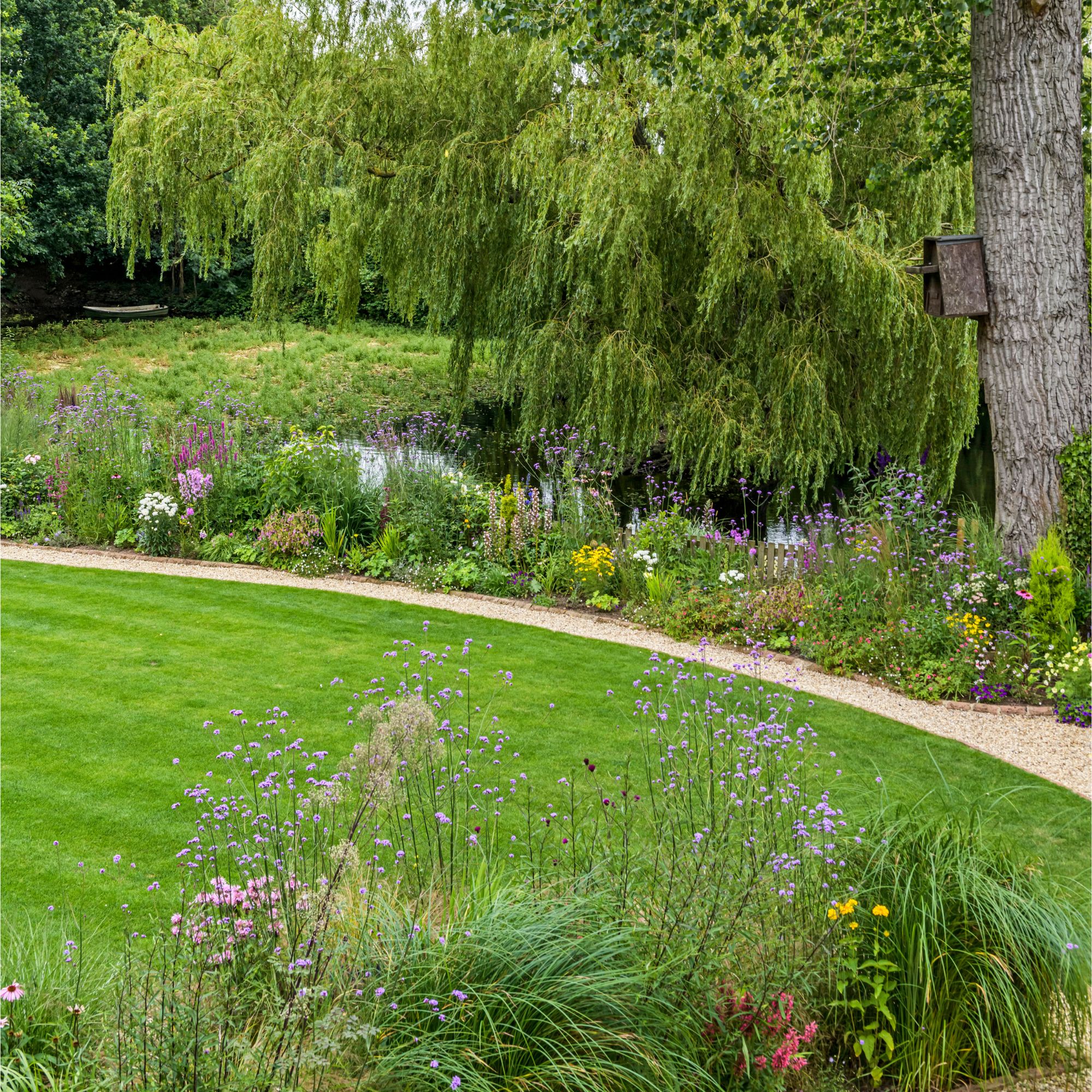
Although you’re probably still in summer mode, this month is a great time to brush up on August lawn care tips and get ahead of the game for the autumn months. In fact, most experts suggest sowing grass seed and overseeding your lawn for a second time in August.
You'll also need to keep on top of watering. 'While not guaranteed, when temperatures do heat up, the ground can become dry and hard, causing grass to become brittle and discolour,' says Mairi Devlin, head of horticulture at B&Q.
'Make sure lawns are kept healthy and hydrated with regular watering from a sprinkler, for at least half an hour every morning and evening. To reduce water waste, use water butts to capture rainwater for the sprinkler systems.'
Mairi recommends the Verve Oscillating Sprinkler from B&Q.
September lawn care

If you didn’t get around to sowing more grass seed in August, you don’t need to worry. September is still an ideal time to sow grass seed on your lawn, allowing you the chance to give it an extra boost before the next growing season.
Don’t put your gardening tools away just yet, though. One of the best September lawn care tips you can have in your back pocket is scarifying and aerating your lawn for a second time. This is all dependent on the state of your lawn, though.
Steve Chilton, garden expert at LeisureBench, explains, ‘Scarifying twice a year can be beneficial for some lawns, especially if they have a significant thatch buildup or moss issues. However, not all lawns require scarification, so it's best to assess your lawn's condition and needs before deciding on the frequency.’
October lawn care

By the time October comes around, the weather will be starting to change, and autumn is about to enter full swing. According to experts, this is the best time to stop cutting grass before winter.
That said, there are still several October lawn care tasks you can be getting on with this month.
Ian says, ‘In the autumn, as leaves start to fall, clear them as often as you can.’ If you don’t, you may smother the grass and restrict the lawn’s airflow and ability to absorb natural light.
November lawn care
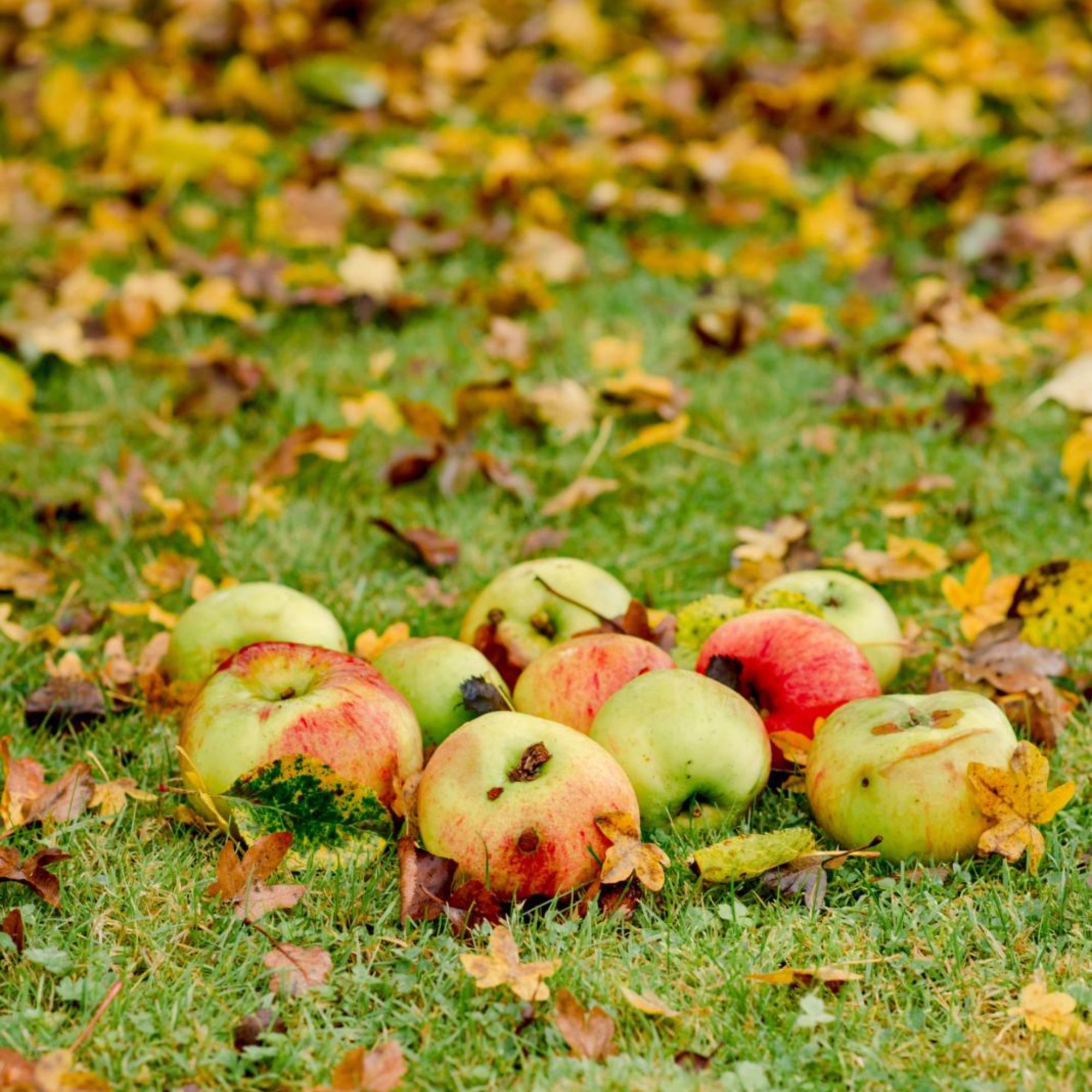
In November, you should continue to keep an eye on your lawn, removing any debris or leaves as soon as possible to keep your lawn in tip-top shape.
However, your November lawn care jobs shouldn’t just focus on the lawn itself. According to Ian, you should also focus on nearby objects that could interfere with your lawn, like trees.
'In winter, cut back overhanging branches to allow more light and remove low branches for better airflow,' he says.
December lawn care

When you’re focusing on Christmas and keeping your home warm over winter, you’re probably not thinking too much about your lawn – and that’s ok! There’s not much to do in December for your lawn, as your main objective is to leave it alone.
In fact, experts state that you should never walk on frosty grass if you can avoid it. Instead, stick to a path and try to keep pets off the lawn as much as possible.
Don’t worry, though – there are still plenty of other jobs to do in the garden in December to keep you busy.
FAQs
In what order should I fix my lawn?
If your lawn is patchy, you'll need to work out the best time to overseed a lawn and start from there. You'll need to prepare your lawn first, though.
'Mow the lawn first, as you won’t be able to do it while new seeds establish,' explains Chris McIlroy, lawn expert at The Grass People. 'Rake and prepare the area and then allow it to cultivate for 10-14 days.
'Apply a fertiliser, then overseed the area, and then water the area daily after sowing your seed. You can avoid this step if there is prolonged rainfall.'
What months should I treat moss in my lawn?
If you’re wondering when to treat moss in a lawn, it’s best to focus on the months just before and after summer, when conditions are ideal. Removing moss ahead of the growing season will allow your lawn more breathing space for healthy growth throughout the rest of the year.
Well, there you have it. Make sure you bookmark this lawn care calendar so you know exactly what to do each month.
Get the Ideal Home Newsletter
Sign up to our newsletter for style and decor inspiration, house makeovers, project advice and more.

Lauren Bradbury has been the Content Editor for the House Manual section since January 2025 but worked with the team as a freelancer for a year and a half before that. She graduated with a Bachelor’s degree in English and Creative Writing from the University of Chichester in 2016. Then, she dipped her toe into the world of content writing, primarily focusing on home content. After years of agency work, she decided to take the plunge and become a full-time freelancer for online publications, including Real Homes and Ideal Home, before taking on this permanent role. Now, she spends her days searching for the best decluttering and cleaning hacks and creating handy how-to guides for homeowners and renters alike, as well as testing vacuums as part of her role as the Ideal Home Certified Expert in Training on Vacuums, having spent over 110 hours testing different vacuum models to date!
- Sophie KingGardens Editor
You must confirm your public display name before commenting
Please logout and then login again, you will then be prompted to enter your display name.
-
 My go-to Ninja coffee machine is on sale for Easter weekend
My go-to Ninja coffee machine is on sale for Easter weekendIt makes coffee shop quality achievable at home
By Molly Cleary
-
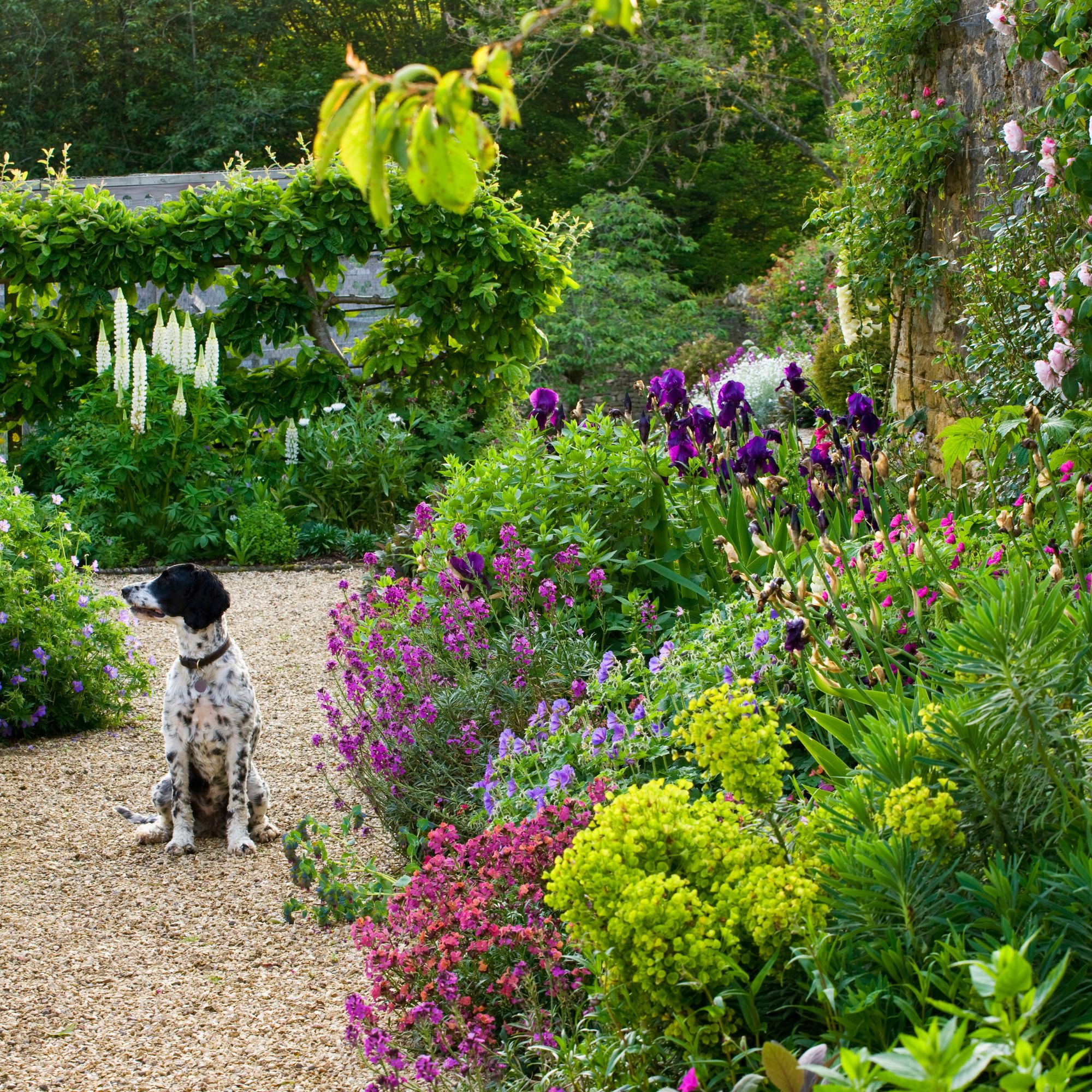 When to plant out annual flowering plants for vibrant, colourful garden borders – and give them the best start, according to experts
When to plant out annual flowering plants for vibrant, colourful garden borders – and give them the best start, according to expertsNot sure when to plant out annual flowering plants? We've got you covered...
By Kayleigh Dray
-
 I'm a kitchen decor editor and didn't like this tableware trend - until I saw H&M Home's designer-look plates
I'm a kitchen decor editor and didn't like this tableware trend - until I saw H&M Home's designer-look platesThey made it easy to justify a new crockery set
By Holly Cockburn
